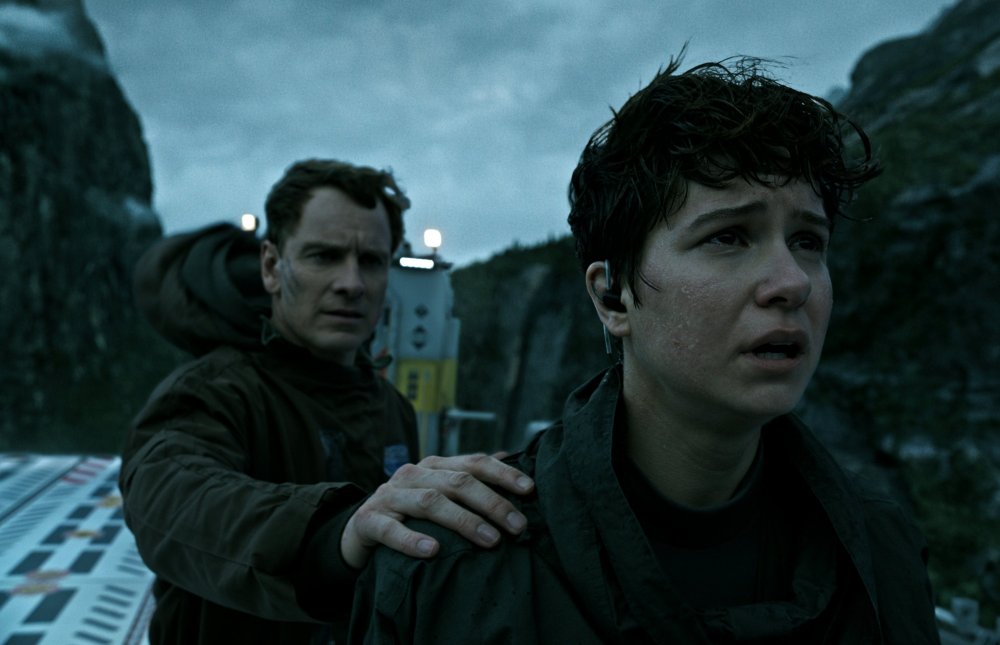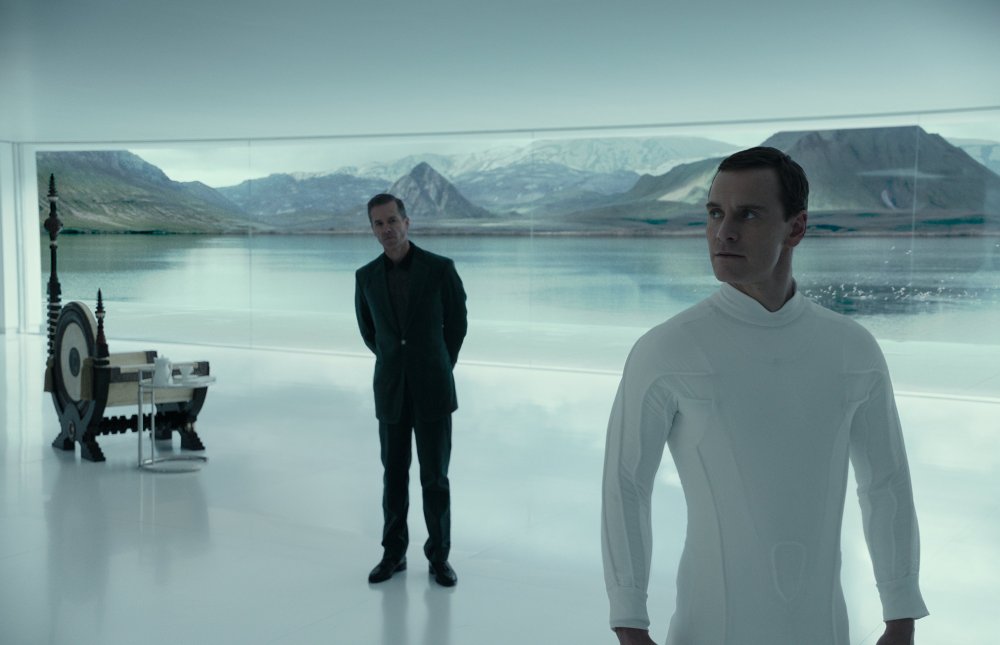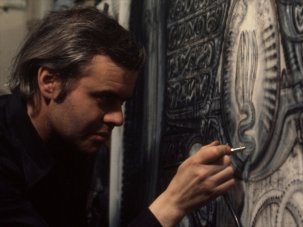The opening scene of Alien: Covenant takes place in a vast, minimalist room with various significant works of human creation – a grand piano, a designer chair, a tea set, a Piero della Francesca painting, Michelangelo’s David and Michael Fassbender’s David (the android who was sole survivor of the critical mauling of Prometheus). Guy Pearce, briefly reprising his role as the founder of the company that has been up to no good since Alien (1979), chats with his artificially intelligent ‘son’ about creation and Creation… and the awful truth dawns that this is just Prometheus 2 with an Alien alien slapped in.
USA/Australia/New Zealand/UK
Certificate 15 122 mins
Director Ridley Scott
Cast
David / Walter Michael Fassbender
Daniels Katherine Waterston
Oram Billy Crudup
Tennessee Danny McBride
Lope Demián Bichir
Karine Carmen Ejogo
Ricks Jussie Smollett
Upworth Callie Hernandez
Faris Amy Seimetz
Hallett Nathaniel Dean
Ankor Alexander England
Ledward Benjamin Rigby
Cole Uli Latukefu
Rosenthal Tess Haubrich
2.35:1
UK release date 12 May 2017
Distributor Twentieth Century Fox
aliencovenanttickets.co.uk
► Trailer
In the second part of a projected prequel trilogy – and, thanks to George Lucas and Peter Jackson, we know how well those turn out – Ridley Scott remains bent on the project of squeezing all suspense, mystery and terror (and, incidentally, life) out of the franchise that burst forth from his chest when he still had to listen to other voices (screenwriters Dan O’Bannon and Ronald Shusett and producers David Giler and Walter Hill – whose ghost credits still linger on in any franchise instalment). The miracle of Alien, which benefited from the input of many creators working superficially at cross-purposes, is that a mutant B-picture could turn out to be a rich, complicated work when its initial impetus was to be just a scary movie… whereas Covenant, like Prometheus before it, sets out to be a profound meditation on big themes that manages to be spectacular yet dramatically and intellectually inert.
Scott is too skilled a filmmaker to make something as disposable as the Alien vs Predator films or as ordinary as Alien Resurrection, but Covenant has the distinction of being the worst-scripted film in the entire franchise. If 2015’s The Martian (based on a solid novel) addressed crises in space by having a hero ‘science the shit out of’ a problem, the writing team on this – John Logan and Dante Harper, from a story by Jack Paglen and Michael Green, from off-the-top-of-his-head concepts by Ridley Scott – approach each challenge as if the answer were to ‘stupid the shit out of’ it. Every idea here is half-baked, even the ones carried over from earlier films. It’s supposed to be an innovation that most of the doomed crew are married couples, but multiple bereavements still don’t make the rote characters (as ever, played by a seriously overqualified cast) interesting or engaging, since the film (unlike, say, Alien – or the feeblest Alien imitations, like the recent Life) can barely establish their names, let alone their personality traits (Danny McBride’s cowboy hat doesn’t count). The new captain (Billy Crudup) claims he was initially passed over for command because of institutional prejudice against “a man of faith” and tells David that he met the devil as a child – but this feels like the remnants of a deleted subplot rather than important to anything.

Michael Fassbinder and Katherine Waterston
The Engineers (unnamed here) who were revealed to be the creators of human life in Prometheus are casually exterminated in a flashback. They leave impressive Pompeii-like petrified corpses and terrifically art-directed colossal ruins to justify quoting ‘Ozymandias’ (with the glitch that supposedly perfect David misattributes Shelley’s poem to Byron), but not the planetful of giant embryo aliens who ought to hatch from them (as per the reshot ending of Prometheus). It’s almost as if the film were still reacting to preview cards for Prometheus – you didn’t like the big bald god race, well they’re gone… you liked Fassbender as a robot, well now you get two of him. Evil robot Fassbender is still doing Peter O’Toole as Lawrence of Arabia, while good robot Fassbender – David and his android twin Walter are named for Giler and Hill – seems to be trying for Rod Serling (or, in some line readings, Adam West). Like all the human characters, the robots are stunningly inept, so only script contrivance ensures that David’s scheme to fill in every last spiral on the genome of the Alien alien – now revealed to be not even an alien – is carried through into Prometheus 3 (aka Alien Untitled).
Covenant stretches to two good, big-screen action scenes – a Jaws-ish bit with a lone monster loose in a wheat field and a tussle between the bungee-corded Ripley-lite (Katherine Waterston, replacing written-out/killed-off-between-sequels Noomi Rapace) and something close to the original xenomorph (the term comes from Jack Arnold’s 1953 It Came from Outer Space, which is homaged in some xeno-POV shots).
It also has Imax-filling Australian locations, haunting variations on Jerry Goldsmith’s themes from Jed Kurzel and repeated shots of a woman’s severed head floating in a pool (not to mention a couple slaughtered while having sex in a shower) to insist that this isn’t just more noodling on the relationship between God and Man and the urge to despoil virgin territory from the creator of Exodus: Gods and Kings and 1492: Conquest of Paradise.
-
The Digital Edition and Archive quick link
Log in here to your digital edition and archive subscription, take a look at the packages on offer and buy a subscription.







